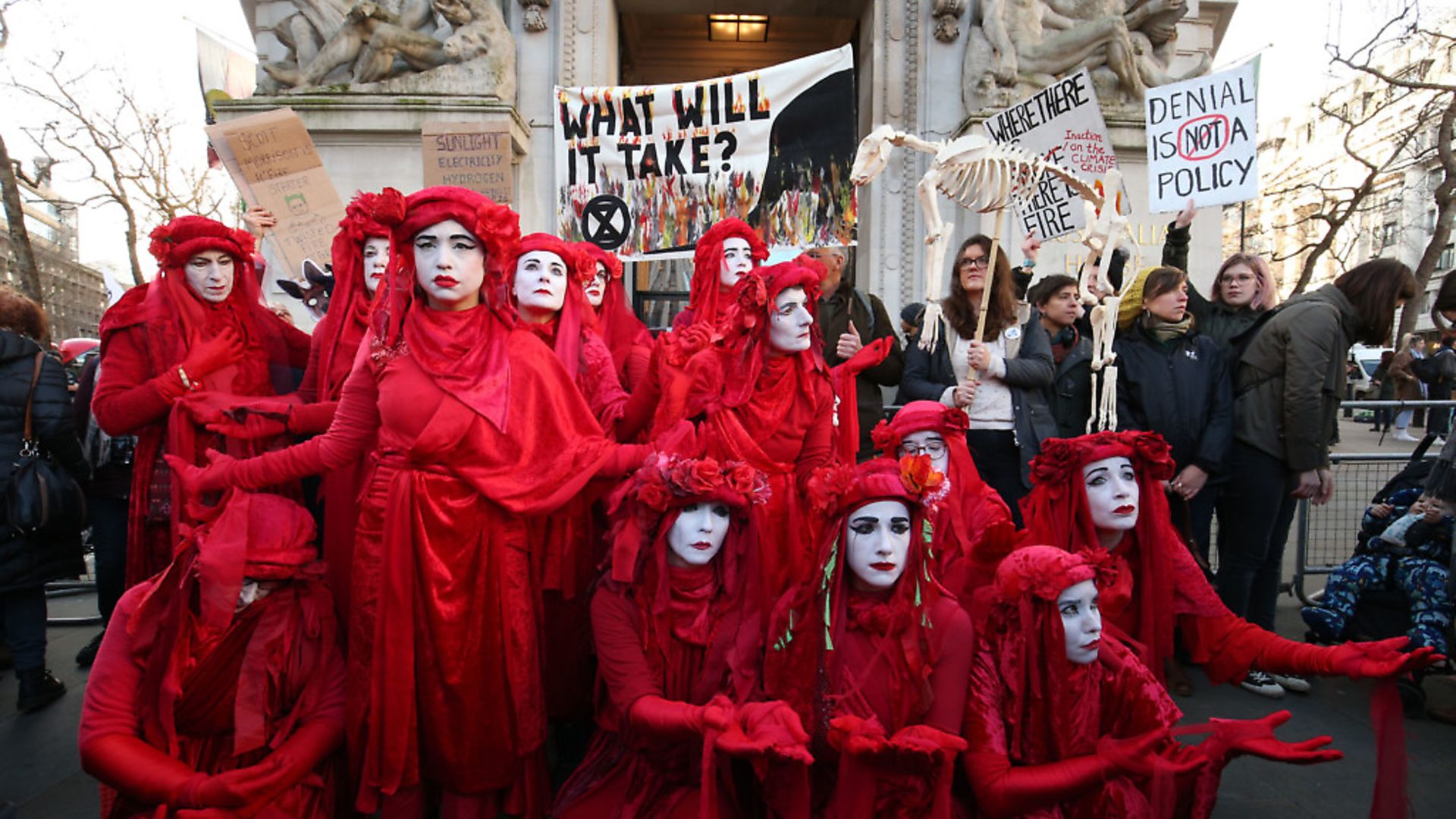
Will former Remain campaigners now switch their attention to climate change activism? Green Party MEP CATHERINE ROWETT thinks not.

Many of us who have spent the last few years fighting an increasingly desperate campaign for Remain are now struggling to find our feet in a new context where ‘remaining’ is no longer on the cards, rejoining is unlikely to be a realistic project for some time and just being bitter about it all is not enough.
One suggested answer I have heard to the ‘what next?’ question we have all been asking is that we might see all that energy, organisation and activism that has hitherto been poured into battling to stay in the EU now being redirected into the campaign for meaningful action to tackle climate change.
Certainly, there is often an overlap between opposition to Brexit and concern about climate change – just as there is often (though not always) a correlation between those wanting to sever our ties with the EU and climate change deniers.
So will we start to see the hundreds of thousands who previously marched against Brexit coming out in similar numbers to demand serious climate action and ambitious decarbonisation targets?
For my part, I think not, for several reasons. Firstly, the Remain movement was a broad coalition. Not all parts were the same. Just as there were two diametrically opposed kinds of Leavers (those for whom the EU was too neo-liberal, too devoted to free trade and economic austerity, and those for whom it was too socialist, too redistributive, with social and environmental regulations that stood in the way of their free market goals), so there were two radically different types of Remainers.
There were those for whom the EU is primarily a collaborative body, providing the natural setting for securing human rights, workers’ rights, animal welfare and environmental regulations, across a level playing field that prevents private profit being extracted at the expense of the good of the collective. Those of us in this camp fought to stay in the EU in the hope of moving it further in that direction, with a view to critical reform to improve but not remove the regulations.
And then there were those Remainers for whom the EU is primarily a trading bloc, occupying a powerful position vis-à-vis other major trading partners. These Remainers hoped to stay in the EU for its economic advantages, to be part of a free market neo-liberal trade alliance. So their criterion of success was a strong economy and a ‘good’ balance of trade, where ‘good’ meant that the bottom line showed a profit. Their natural mode of discourse tended to be about ensuring that industry and commerce remained ‘competitive’ – to which end, regulation must be minimal.
The kind of Remainer in this second camp is more likely to find themselves inside the building being targeted by Extinction Rebellion than outside glueing themselves to the door.
Such neo-liberal, globalising Remainers are not going to be leading the way in seeking more regulations at home with the aim of achieving genuine and dramatic carbon reductions or a zero-growth economy. But what about those former Remainers who do align more closely to the climate cause and would like to have found more time for environmental action but, since 2016, have been pre-occupied with stopping Brexit? Can we assume that all of that energy will now be available for climate action?
Probably not, because such an assumption would mean accepting Boris Johnson’s premise that he has effectively ‘got Brexit done’. The election result does not mean that the repercussions and the threat that Brexit poses are simply going to vanish, allowing us all to relax and go back to hugging trees. Not a bit of it. Activism will remain focused on this and related issues.
North of the border, it will clearly be diverted first to the campaign for Scottish independence and then for rejoining the EU. I do not imagine that either of those will be easy to achieve. In Northern Ireland there will be a new political crisis and we can expect moves towards a referendum on reunification, plus the threat of a new period of escalating sectarian violence. This too will be an all-consuming diversion from more global issues. In the rest of the UK we shall have to respond to both these crises with an attempt to keep our nations united in hard times under a government that has no clue about what kind of pandora’s box it has just opened.
And then there will be the divisions in the Labour Party. Will Brexit put an end to Labour’s difficulties, which stem from its failure to convert the hearts of the old Labour faithful in the north to embrace a European identity? Will the party be able to move forward in unity, now that it no longer has to juggle two quite different outlooks and pretend they can be fitted under one manifesto? I suspect not. The Brexit division was surely only one among many issues that expose the mismatch between the outlook of the typical young Labour-voting graduate in London and that of a worker in a unionised industry in the north. So political divisions, and activism, will continue to play out on the left.
And we will also see a rise in the campaign to change the voting system, which has once again produced a government at odds with the majority of its people, and one which is about to make dramatic constitutional changes.
So besides protesting day by day at whatever horrifying new policies and legislation may be emerging from the Brexit process, there will also have to be a vigorous campaign on the streets to try to achieve voting reform.
And on the streets is effectively where every campaign will have to be, because while the government has a huge majority of seats and operates an unscrupulous whip, there will be no scope within Westminster to stop the legislative programme, no matter how unpopular it is.
And then there is the situation in the Middle East, the evident reluctance of our government to distance the UK from the bellicose Trump, and hence the threat that we could find ourselves in ‘Stop the War’ protest season again before too long.
So shall we find that all the pro-Europe activism is now diverted to green activism? No.
If we ever supposed that once Brexit was ‘done’ the only issue distracting us from saving the planet will have gone away for good, we shall soon discover how very wrong we were.
Catherine Rowett was elected as a Green Party MEP for the East of England last year.









